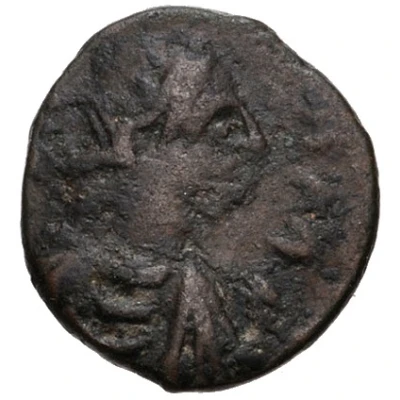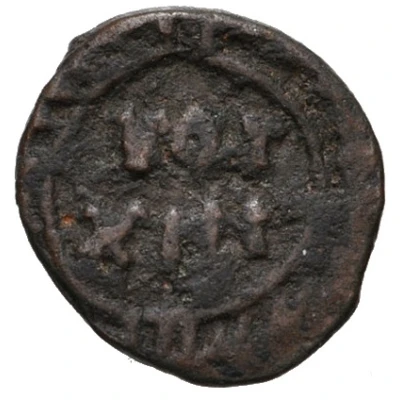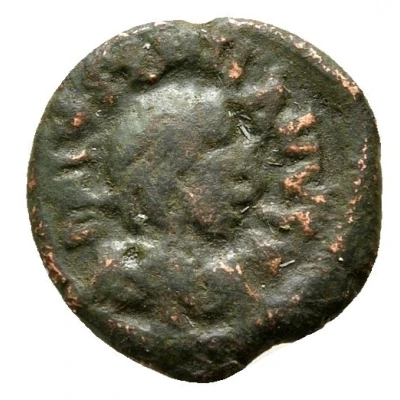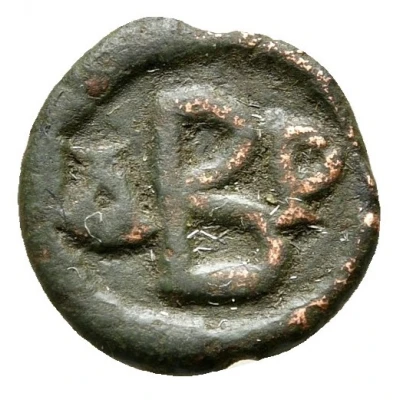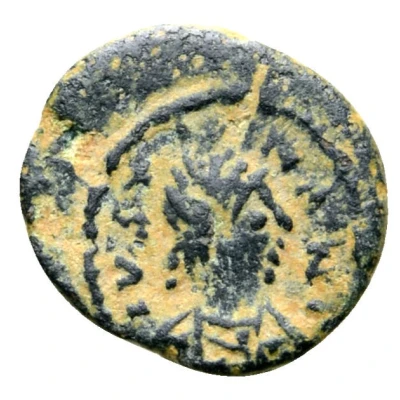
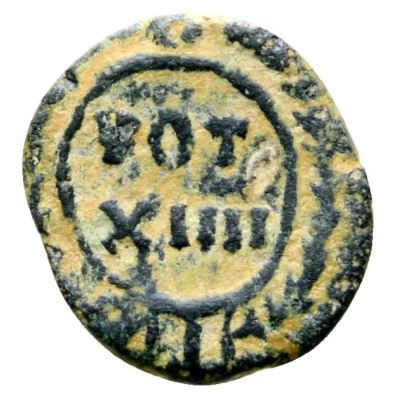

© Roma Numismatics Limited
Nummus - Justinian I VOT XIIII; Carthage ND
| Copper | 0.6 g | 9 mm |
| Issuer | Byzantine Empire (Byzantine states) |
|---|---|
| Emperor | Justinian I (527-565) |
| Type | Standard circulation coin |
| Years | 540-541 |
| Value | 1 Nummus (1⁄7200) |
| Currency | First Solidus Nomisma (498-720) |
| Composition | Copper |
| Weight | 0.6 g |
| Diameter | 9 mm |
| Shape | Round (irregular) |
| Technique | Hammered |
| Orientation | Variable alignment ↺ |
| Demonetized | Yes |
| Updated | 2024-10-04 |
| Numista | N#300298 |
|---|---|
| Rarity index | 97% |
Reverse
Legend in two lines in linear border within wreath.
Script: Latin
Lettering:
VOT
XIIII
Translation: "Vows for the 14th Reign Anniversary"
Comment
Obverse legend normally illegible.Interesting fact
The Nummus coin was used as a means of payment for the Byzantine Empire, which was a vast and powerful empire that lasted for over 1,000 years. The coin was first introduced during the reign of Emperor Justinian I, who ruled from 527 to 565 AD. The Nummus was made of copper and had a distinctive design, featuring an image of the emperor on one side and a cross on the other. The coin was widely used throughout the empire and played an important role in facilitating trade and commerce. Despite its small size and relatively low value, the Nummus coin is highly sought after by collectors today due to its historical significance and rarity.
